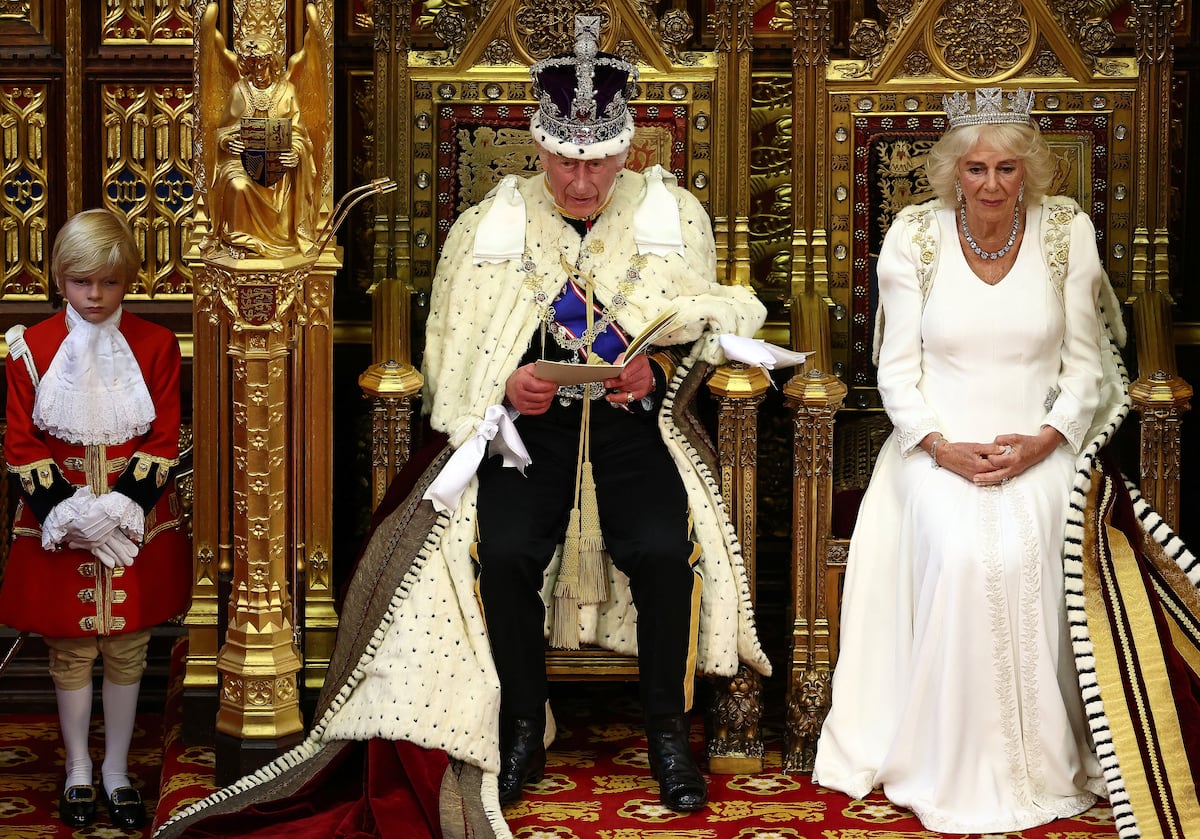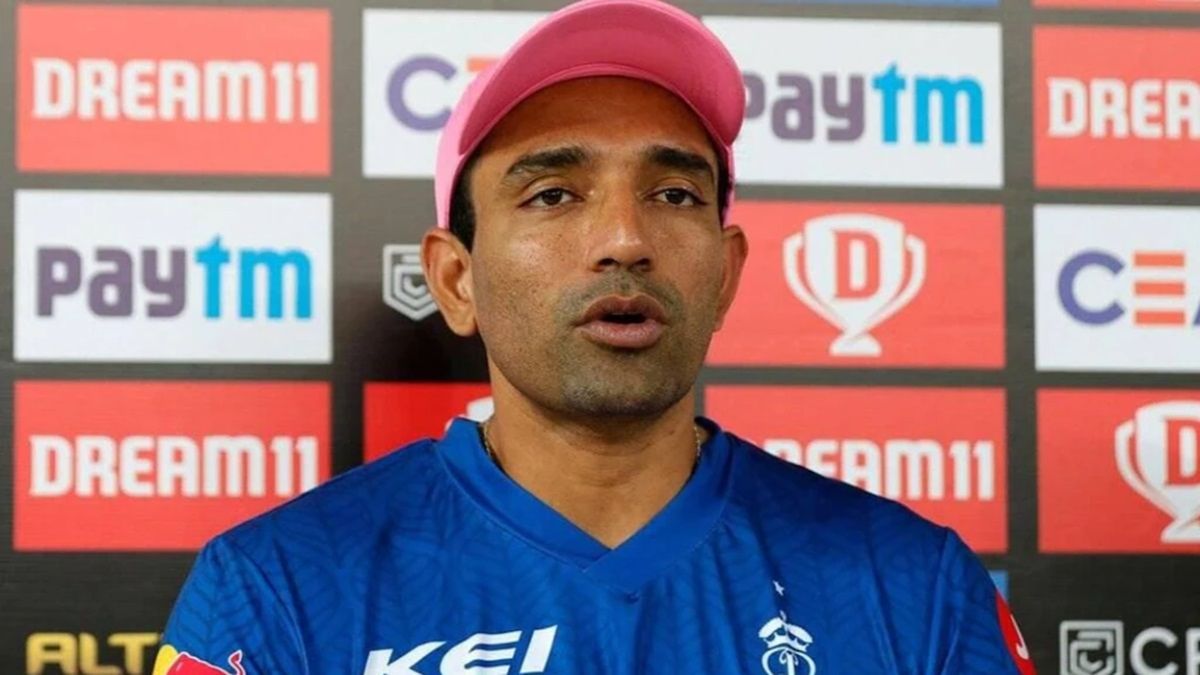A speech packed with radical reforms to “take the brakes off the United Kingdom” and accelerate its growth, but read in a ceremony that preserves the tradition repeated century after century. Charles III has worn the imperial crown and has sat back on the throne of the House of Lords, accompanied by Queen Consort Camilla – who turned 77 this Wednesday – to read to the members of Parliament the legislative agenda of the new Labour Government of the United Kingdom.
“The fundamental mission will be to ensure economic growth [del país]”My Government – for a reason the official term is “His Majesty’s Government” – will pursue an alliance with businessmen and workers to help citizens overcome the current crisis in the cost of living, giving priority to the creation of wealth in all communities,” announced Charles III.
None of the 35 laws announced by the monarch has come as a surprise. The Labour Party has had time, in the months leading up to its electoral victory on 4 July, to detail its political intentions once it reaches Downing Street. Listening to the king list all the measures – many of them a small revolution in themselves – has served to make the British aware of the dimension that the “national renewal” promised by Keir Starmer could represent, if it really comes to fruition.
“The time has come to take the brakes off in the UK. For too long, people have been forced to fall behind. Their life paths have been determined more by their background than by their talent or hard work,” said Starmer, shortly before the king announced his next measures. “The new laws we are introducing today will help us take back control and lay the foundations for the real change this country is crying out for,” added the Prime Minister, who even allowed himself to snatch one of the most popular slogans from the previous Conservative government: take back controltake back control, the rallying cry to push through Brexit.
Planning reform, to give the government more power over landowners to develop new infrastructure, social housing or renewable energy plants. Labour reforms to guarantee fairer wages and new rights for workers. Reforms to return transport powers and growth plans to local governments. Plans to nationalise the country’s rail networks and services if private companies do not turn around the deterioration of recent years. Or a new public corporation, Great British Energy, to accelerate investment in new green technologies and lower electricity and gas bills.
From the outset, Starmer has wanted to convey his desire to maintain the stability and budgetary rigour that were rampant under previous governments. Especially during the economic debacle that was the brief mandate of Liz Truss and her irresponsible tax increases. This was made clear in the first paragraph read by Charles III: “Every decision will be consistent with tax regulations. We will legislate in such a way as to ensure that every change in taxes or spending is subject to an independent assessment by the Office for Budget Responsibility,” the independent auditor to whom the Executive has promised to grant new powers.
Knowing what’s happening outside means understanding what’s going to happen inside, so don’t miss anything.
KEEP READING
Former Prime Minister Rishi Sunak, who has been tasked with drawing up the opposition’s response to the speech while he remains provisionally at the head of the Conservative Party, has promised that the Tories The UK government will not block the new laws purely for partisan strategy, but has insisted on what was its main argument during the electoral battle: the hidden intention of Labour, according to him, to raise taxes. “The Labour Party promised in its electoral programme that it would not raise taxes on the working classes, when it already had full knowledge of the public accounts,” said Sunak. “They can no longer say now that things were worse than they thought in order to renege on that promise,” he added.
Beyond the economy
The bulk of the speech has focused on economic growth plans, but Starmer wanted to introduce other measures already promised, with a more social content. Most of them focused on the area of security, because the text has recovered the promise of creating a Joint Border Command, to combat illegal immigration mafias; the commitment to reinforce the police to make the streets safer, and the will to reduce by half the cases of gender violence against women and girls.
The new government has reiterated its desire to improve relations with the EU and its commitment to a two-state solution to the crisis between Israel and Palestine.
The Prime Minister, who did not hesitate to maintain a cordial attitude towards his predecessor, Sunak, during the ceremony in Parliament, also brought up three projects from the previous Conservative Government that did not come to fruition: the gradual ban on the sale of tobacco to minors, the reinforcement of the rights of tenants in rented housing and a new regulatory body for the world of football.
The pomp of the ceremony
For the second time as monarch of the United Kingdom, Charles III has taken part in the opening ceremony of the legislature. He travelled from Buckingham Palace to the Houses of Parliament in Westminster in the Royal Diamond Jubilee Carriage; he wore on his head the imperial crown, weighing one kilo and made up of 2,868 diamonds, 273 pearls, 17 sapphires, 11 emeralds and 5 rubies; the famous beefeater, the monarch’s personal guard, have searched the cellars of Parliament, before the royal procession arrived, for traces of gunpowder. And the Lady of the Black Cane (Black Rod), Sarah Clarke, the royal representative in both Houses, has once again seen the door of the Commons slammed in her face when she tried to call its members to listen to the monarch’s speech. She has again knocked on the door three times with her cane, to be let in, in a centuries-old liturgy that represents the independence of the deputies from the crown.
The new House of Commons, now inhabited mostly by Labour representatives, has gone to the opposite wing of the Westminster Parliament, to the House of Lords, to hear a government plan that, according to Starmer himself, promises to be even more transformative than the one presented by Tony Blair in 1997.
Follow all the international information at Facebook and Xor in our weekly newsletter.








